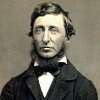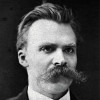“ Our virtues are necessarily determined, and are even stimulated, by our weakness. ”
Friedrich Nietzsche, Twilight of the Idols (1889). copy citation
| Author | Friedrich Nietzsche |
|---|---|
| Source | Twilight of the Idols |
| Topic | weakness virtue |
| Date | 1889 |
| Language | English |
| Reference | |
| Note | Translated by Anthony M. Ludovici |
| Weblink | https://www.gutenberg.org/files/52263/52263-h/52263-h.htm |
Context
“and in a lack of egoism and of self-esteem.—Ages should be measured according to their positive forces;—valued by this standard that prodigal and fateful age of the Renaissance, appears as the last great age, while we moderns with our anxious care of ourselves and love of our neighbours, with all our unassuming virtues of industry, equity, and scientific method—with our lust of collection, of economy and of mechanism—represent a weak age.... Our virtues are necessarily determined, and are even stimulated, by our weakness. "Equality," a certain definite process of making everybody uniform, which only finds its expression in the theory of equal rights, is essentially bound up with a declining culture: the chasm between man and man, class and class, the multiplicity of types, the will to be one's self, and to distinguish one's self—that, in fact, which I call the pathos of distance is proper to all strong ages.”
source



